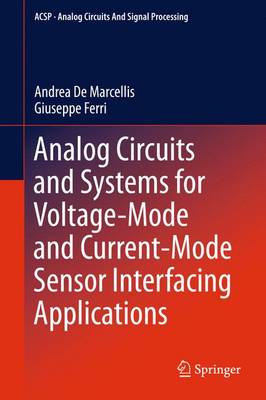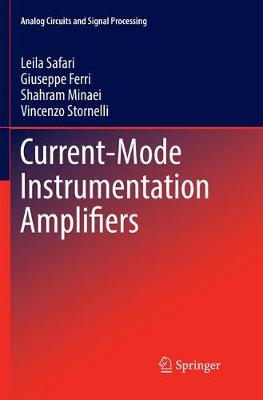Analog Circuits and Signal Processing
2 total works
Analog Circuits and Systems for Voltage-Mode and Current-Mode Sensor Interfacing Applications
by Andrea De Marcellis and Giuseppe Ferri
Analog CMOS Microelectronic Circuits describes novel approaches for analog electronic interfaces design, especially for resistive and capacitive sensors showing a wide variation range, with the intent to cover a lack of solutions in the literature. After an initial description of sensors and main definitions, novel electronic circuits, which do not require any initial calibrations, are described; they show both AC and DC excitation voltage for the employed sensor, and use both voltage-mode and current-mode approaches. The proposed interfaces can be realized both as prototype boards, for fast characterization (in this sense, they can be easily implemented by students and researchers), and as integrated circuits, using modern low-voltage low-power design techniques (in this case, specialist analog microelectronic researchers will find them useful). The primary audience of Analog CMOS Microelectronic Circuits are: analog circuit designers, sensor companies, Ph.D. students on analog microelectronics, undergraduate and postgraduate students in electronic engineering.
Current-Mode Instrumentation Amplifiers
by Leila Safari, Giuseppe Ferri, Shahram Minaei, and Vincenzo Stornelli
This book describes a new way to design and utilize Instrumentation Amplifiers (IAs) by taking advantages of the current-mode (CM) approach. For the first time, all different topologies of CMIAs are discussed and compared, providing a single-source reference for instrumentation and measurement experts who want to choose a topology for a specific application. The authors also explain major challenges in designing CMIAs, so the book can be useful for anyone studying instrumentation amplifiers, and even other analog circuits. Coverage also includes various CM signal processing techniques employed in CMIAs, and applications of the CMIAs in biomedical and data acquisition are demonstrated.

